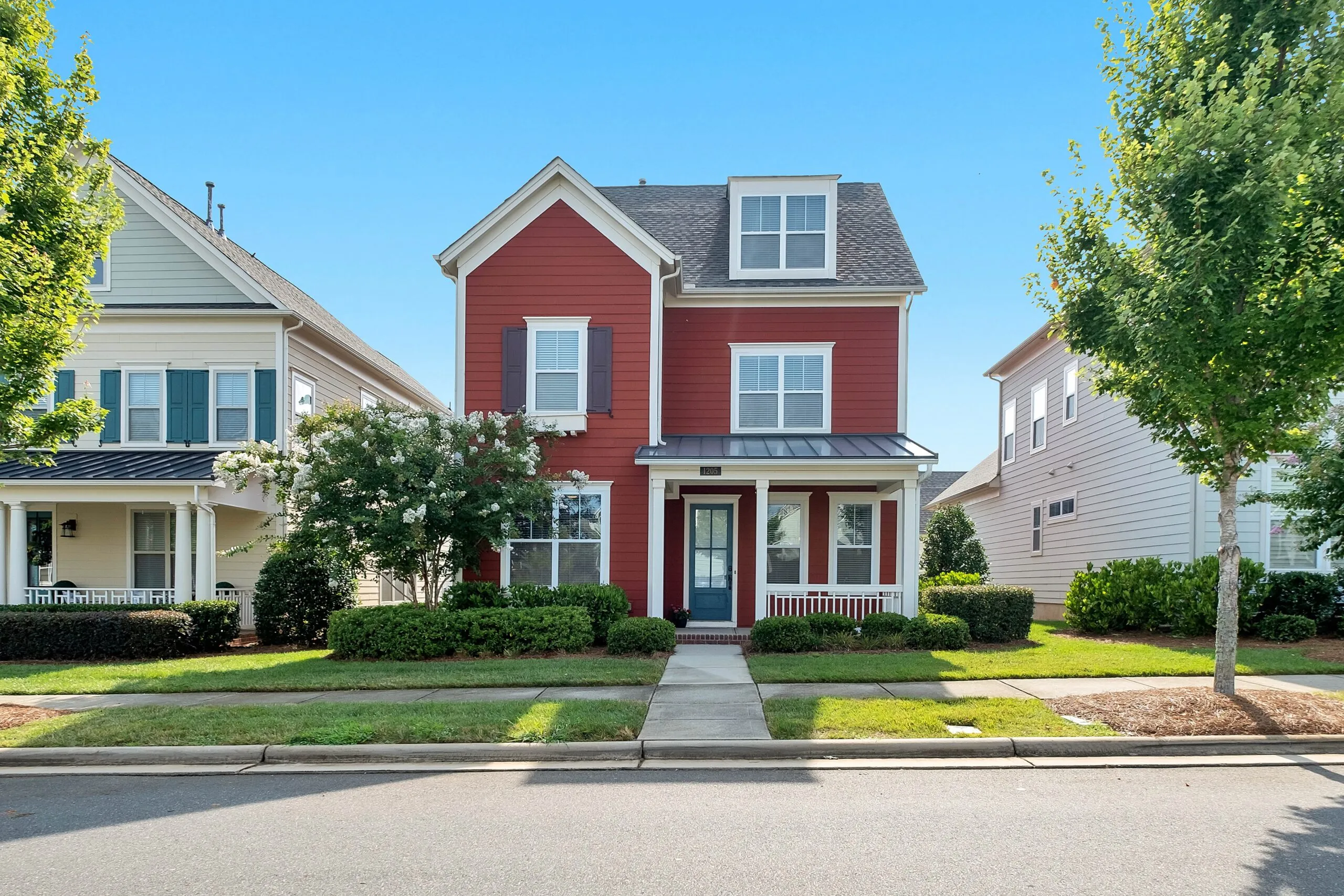How Much Value Does Central Air Add to a House?
Anyone who has spent a summer relying on window units and fans knows the struggle: uneven cooling, loud motors humming through the night, and the constant battle of installing and removing them each season.
Homes with central air are not just more comfortable but also more desirable to buyers. For sellers, central air isn’t just about comfort, it can also be a major selling point or a reason their property doesn’t sell. In specific markets, buyers see it as a necessity rather than a luxury, and homes without it may sit on the market longer or sell for less.
But just how much value does central air add? Is it worth installing before selling, or is it one of those upgrades that won’t pay off? This article breaks down the benefits of central air, how much value it can add, and whether installing it before selling is the right move.
Benefits of Adding a Central Air Conditioning System
A home’s value isn’t just about square footage or curb appeal, comfort plays a significant role, too. In many parts of the country, central air conditioning isn’t just a perk; it’s an expectation.
While some homeowners rely on window units, portable ACs, or even split units, these alternatives have drawbacks: uneven cooling, higher energy bills, and constant installation hassles. A central air system eliminates these issues, making a home more livable and, in many cases, more valuable.
Comfort and Convenience
Window AC units struggle to keep multiple rooms at a steady temperature, and even the best fans can’t do much against intense summer heat. An HVAC system provides even, whole-house cooling, ensuring every room stays comfortable.
Beyond temperature control, an HVAC system operates quietly, unlike window units that vibrate, hum, and rattle through the night. A well-installed system runs almost silently, allowing for a more peaceful home environment.
Many homeowners also see an improvement in indoor air quality, as central air systems include filters that capture dust, allergens, and airborne pollutants. This can be a game-changer for individuals with asthma or allergies, creating a cleaner, healthier home.
Another overlooked benefit is humidity control. Excess humidity in a home can lead to discomfort, musty odors, and even damaging mold growth in the walls and on personal belongings. Central air systems help regulate moisture levels, reducing that sticky, heavy feeling that can come with summer heat.
Instead of battling multiple window units and dehumidifiers, homeowners can enjoy a steady, comfortable indoor climate. Plus, in a well-insulated home, they can even offer better energy efficiency than their counterparts.
Energy Efficiency
A common misconception is that central air conditioning consumes more energy than window units. In reality, new central air systems are designed for efficiency, often using less electricity to cool an entire home than multiple window units running simultaneously. Unlike window ACs, which tend to leak air around their seals, central air systems work in tandem with a home’s insulation, keeping cool air in and reducing wasted energy.
Many newer systems are ENERGY STAR certified, meaning they meet efficiency standards that help lower electricity costs while maintaining optimal performance. Some models also feature zoned cooling, allowing homeowners to control temperatures in different parts of the home separately, reducing unnecessary energy use in unoccupied rooms.
When paired with a smart thermostat, a central air system can automatically adjust cooling levels based on time of day, weather conditions, or household routines, further improving efficiency.
Another major advantage is longevity. While window units often need to be replaced every few years, a well-maintained central air system can last 15 to 20 years. It is a long-term investment that reduces energy consumption, replacement costs, and waste over time. Some homeowners may also benefit from local or federal tax incentives for upgrading to energy-efficient HVAC systems, providing an opportunity to offset installation costs while improving overall home value.
Increased Buyer Appeal
In regions with warm climates, homes without central air can be a tough sell, often lingering on the market longer or requiring price reductions to attract buyers looking for a fixer. Many house hunters filter their searches to exclude properties without central air, meaning homes lacking this feature may never even make it onto a buyer’s radar.
Buyers today aren’t just looking for a house; they’re looking for a move-in-ready home with minimal upgrades required. A well-maintained or new HVAC system reassures buyers they won’t have to deal with costly improvements right after purchasing. This can be a major selling point, especially for first-time homebuyers who may not have the budget for immediate renovations.
A home with central air also appeals to remote workers and those who spend more time at home. With more people working from home, they want to ensure the work environment is conducive to productivity. Therefore, a reliable cooling system has become a bigger factor in purchasing decisions. Additionally, most mortgage lenders and appraisers consider HVAC systems when assessing a home’s value, which can improve financing opportunities and justify a higher asking price.
How Much Value Can Central Air Add to Your Home?
In warm climates like Florida or Texas, central air is often considered a necessity, and homes without it may struggle to attract buyers.
In other markets, like the Bay Area or the far Northeast, it’s seen as a valuable upgrade that makes a home more desirable but may not significantly impact resale value.
On average, central air can increase a home’s value by 5%–7%. Other studies show buyers are often willing to pay an additional $2,500 to $5,000 for a home with installed central air. However, this varies based on demand in different regions. The impact on value depends on:
- Climate & Regional Expectations
States with hot summers, air conditioning is considered as essential, making homes without it less desirable. In cooler climates, the added value may be minimal. - System Age & Efficiency
A new, high-efficiency HVAC system adds modestly more value than an older unit that may need replacing in a few years. - Market Conditions
In a competitive market, homes with or without central air will likely sell quickly. If buyers have many options, a lack of air conditioning could hurt a home’s desirability.
Beyond direct price increases, central air can make a property more competitive in the market. As a result, they can sell faster or with less hurdles.
Return on Investment (ROI) of Installing Central Air Conditioning
The cost to install central air conditioning varies based on factors such as home size, system efficiency, and existing infrastructure. On average, homeowners can expect to spend between $5,800 and $14,400 for a new central air system, including ductwork, in a 2,000-square-foot home.
While central air conditioning can make a home more attractive to buyers, it doesn’t always provide a full return on investment. Estimates suggest that homeowners may recoup approximately 35% to 50% of the installation cost upon resale.
For example, if the installation costs $10,000, the potential increase in resale value might range from $3,500 to $5,000. This recouped value can vary based on regional climate, local market conditions, and the system’s energy efficiency.
While the initial investment is significant, the long-term energy cost savings can offset a portion of the installation expenses. Additionally, energy-efficient systems may qualify for tax credits or rebates, further enhancing the return on investment.
Factors That Influence the Value of Central Air
In some markets, a home without it can feel outdated and struggle to sell, while in others, it’s a nice bonus but not a dealbreaker. The difference comes down to location, buyer expectations, and system efficiency.
Regional Climate
Hot and humid areas almost require central air. Homes without it may sell for less and usually take longer to attract offers. However, in mild or cool climates, a central air unit may not be as highly valued, and buyers might not be willing to pay a premium for it.
The local climate can considerably impact the value a central air conditioning system adds to a house. In temperate coastal areas, even luxury homes can exist without AC systems. Before investing in air conditioning, consider what buyers want and how much use the system will get.
Local Market Expectations
A home’s value is often dictated by what’s standard in the neighborhood. In areas where most homes already have central air, a house without it may feel outdated and struggle to compete. On the other hand, if central air isn’t common in a particular area, installing it may not yield a strong return on investment, as buyers won’t necessarily expect it.
Buyer demographics can also influence demand. Families with young children, retirees, or remote workers who spend more time at home may be more likely to prioritize a well-functioning central air system, making it a bigger selling point.
System Age and Efficiency
A modern, energy-efficient HVAC system will attract more buyers than an older unit that may need replacement soon. Systems with high SEER (Seasonal Energy Efficiency Ratio) ratings can appeal to buyers looking to reduce long-term energy costs.
Smart thermostats and zoned cooling systems, which allow homeowners to control temperatures in different areas of the house, add another layer of value. These features help buyers save on energy bills and improve overall comfort, making a home more attractive.
Home Type and Size
The impact of central air also depends on the size and layout of the home. Larger homes benefit more from central systems since cooling multiple rooms with window units can be inefficient and costly. In contrast, smaller homes may not see as much added value, especially if ductless mini-splits or alternative cooling methods are common in the area.
Additionally, homes with existing ductwork tend to have lower installation costs, making the return on investment more favorable. On the other hand, older homes without ductwork may require extensive renovations, which can significantly increase upfront costs and reduce financial benefits.
Is It Worth Adding Central Air Before Selling?
Deciding whether to install central air conditioning before selling your home involves evaluating installation costs, local market expectations, and potential buyer demand.
Installation Costs
The cost to install central air conditioning varies based on factors such as home size, existing ductwork, and system efficiency. On average, homeowners can expect to spend between $5,000 and $12,000 on installation.
Homes without existing ductwork may incur additional expenses, potentially increasing the total cost by as much as $16,000. If you are considering adding central AC to a house without ductwork, it may be better to consider a ductless mini-split system.
Split air conditioners may not work well for multiple rooms, but they are attractive and quieter than window units.
Local Market Considerations
In warmer climates or regions where central air is a standard feature, homes lacking this amenity may be less appealing to buyers, potentially affecting sale price and time on the market.
Conversely, installing a central system may not significantly impact buyer interest or property value in cooler areas where air conditioning is less common.
Buyer Demand and Marketability
Studies have shown that homes with air conditioning can sell for approximately 2.5% more than those without, but that greatly varies by market conditions. Even in milder climates, homes with modern HVAC systems tend to be viewed as well-maintained and move-in ready, making them more appealing to buyers who want to avoid immediate upgrades.
Beyond price, central air can speed up the selling process. Buyers are more likely to choose a home that feels comfortable during showings, and an adequately cooled home can create a better first impression, especially in hot weather.
In competitive markets, homes with central air may stand out among similar listings, even if AC isn’t a sought-after feature in that area.
Is a Central Air System the Right Investment for Your Home?
For some homes, adding central air is a smart investment that attracts buyers and increases value. In others, the cost may outweigh the return, making it an unnecessary expense. Location, climate, and market demand all play a role in whether installing central air before selling is worth it. I
Before making a decision, evaluate market conditions and buyer expectations in your area. A knowledgeable real estate agent can provide personalized insights to help determine if central air will increase your home’s value and marketability.
If you’re unsure whether Central Air is the right investment for your home, connect with a top-rated real estate agent through FastExpert. Our search platform connects you with experienced professionals who understand your local market and can guide you toward the best home improvement decisions.





